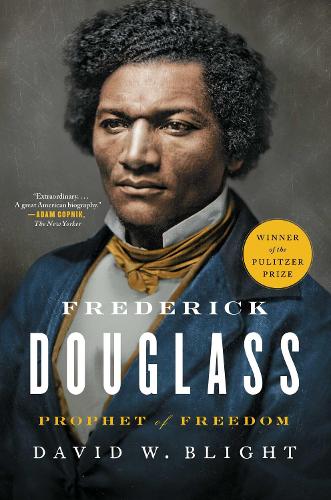David Blight's Pulitzer Prize-winning biography of Frederick Douglass offers a profound and nuanced exploration of the iconic figure's life, revealing both his public heroism and private complexities. The book delves into Douglass's transformations from a runaway slave to a leading abolitionist and political figure, highlighting his intellectual power, religious faith, and enduring impact on the fight for racial equality.
David Blight's biography of Frederick Douglass is a masterful work that captures the essence of one of America's most influential figures. The book provides a detailed account of Douglass's life, from his early years as a slave to his rise as a prominent abolitionist and political leader. Blight's narrative is rich with historical context and personal insights, offering a balanced view of Douglass's public achievements and private struggles. The author skillfully navigates the complexities of Douglass's character, revealing his intellectual brilliance, unwavering faith, and the challenges he faced in his personal and political life. This biography not only enhances our understanding of Douglass but also underscores his enduring legacy in the fight for freedom and equality.
Quick quotes
Douglass was born Frederick Augustus Washington Bailey. After escaping to freedom in 1838 he took the name by which he would achieve national and international fame, an act of self-creation inspired by Walter Scott’s poem Lady of the Lake.
Douglass the radical outsider, an admirer of the insurrectionist John Brown, after the Civil War became a Republican Party insider, serving in political and diplomatic posts.
The narrative of Exodus, the warnings of Jeremiah and the wisdom of Isaiah fundamentally shaped his personal and political creed, to a greater extent even than the secular Enlightenment and natural-rights traditions did.
